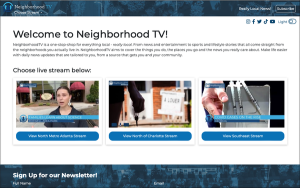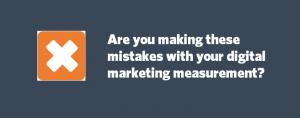 “Landing a freelance assignment may be more valuable than landing an internship.”
“Landing a freelance assignment may be more valuable than landing an internship.”
Graduation season is right around the corner and for many of this year’s estimated 1.7 million graduating college students, the job market has never been more complex.
Like inventory levels, businesses have always had fluctuating needs for workers. Whether seasonal or cyclical, predicting anticipated staffing levels and finding the right talent in a timely manner has historically been a difficult task. The process of posting openings, screening resumes, conducting interviews, checking backgrounds is slow, inexact and arduous.
While the emergence of social media and the advent of “social recruitment” has certainly made hiring employees more efficient, hiring full-time W-2 employees remains an expensive proposition. Without an efficient and reliable marketplace to shop for workers on an as-needed basis, businesses still default to hiring full-time staff to meet peak needs followed by expensive layoffs later on when the demand subsides.
Expected to soon represent 50% of the U.S. workforce, the rise of the Gig Economy (aka “Demand Economy” or “Freelance Economy”) deserves everyone’s attention. Just as technology introduced groundbreaking efficiency to inventory and supply chain management (as pioneered by Walmart and perfected by Amazon), technology today is delivering the same real-time market efficiency to workforce management. Think of the Gig Economy as the ultimate marketplace where technology becomes the market maker of matching a willing buyer to a willing seller.
Businesses like Uber and Airbnb leverage technology to make the market between buyers and sellers of rides and rooms. The Gig Economy in turn uses technology to make the market between businesses (buyers) and workers (sellers). A recent Fieldglass survey found that 92% of enterprise organizations cite nontraditional talent (freelancers and contractors) as a moderate-to-vital aspect of their overall corporate strategy.
Social media platforms such as LinkedIn, Twitter, Facebook, Instagram and YouTube as well as freelance services like TaskRabbit and others are facilitating the growth of the Gig Economy. Businesses can now find people with the talents, skills and experiences to perform specific tasks quickly, easily and inexpensively. The process is extremely efficient. Businesses protect themselves against bloated payrolls by using specialized talent and maintaining flexibility while achieving targeted results. Workers maintain more control over the lives, set their fees and can market their services to grow their freelance business.
College graduates looking to start their careers and searching for income opportunities need to target the Gig Economy as part of their overall job search strategy. In addition to submitting their resume and cover letter in response to full-time job postings, they should also be marketing themselves as freelancers. Coders, graphic designers, UI/UX, photographers, researchers, project managers, copywriters, public relations, market analysts, sales, videographers, logistics are all examples of freelance talents and skills in demand by businesses.
As with searching for a job in the age of social recruitment, in order to participate in the Gig Economy, students must have a publicly available and focused online presence. This “digital billboard” defines their personal business brand by showcasing their specific skills, portfolios, references and education as public proof of their work and ability. Establishing a consistent presence on LinkedIn, Facebook, Twitter, Instagram and YouTube is optimal. These platforms become the home of their professional identity. These are the places where they will conduct business and build their reputations. These efforts in turn make them more marketable and creates demand for their services.
What skills, experiences and talents should students be emphasizing to define and showcase their personal brand? In addition to tangible hard skills, showcasing soft skills such as their ability to collaborate, solve problems, lead, and write form a solid foundation. Their professionalism, work ethic and good character are also essential elements of a successful freelancer.
As the economy continues to be disrupted by technology, the growth of the Gig Economy makes perfect evolutionary sense. An economy of free agents utilizing their talents for the benefit of multiple businesses, all enabled by technology is a compelling picture. For young adults entering the workforce and possessing an ounce of entrepreneurial spirit, exploring freelance opportunities could be a path worth pursuing as they begin their professional careers.
(247)








